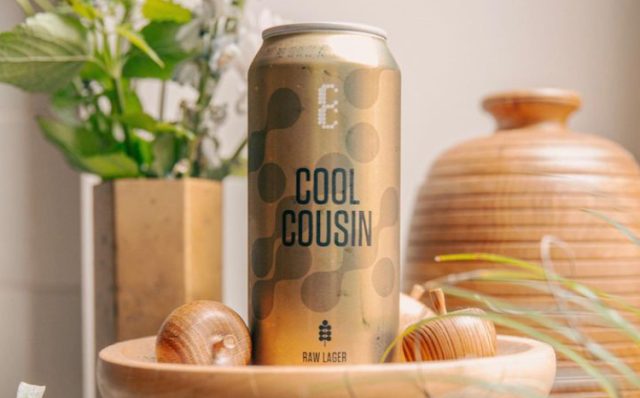This website uses cookies so that we can provide you with the best user experience possible. Cookie information is stored in your browser and performs functions such as recognising you when you return to our website and helping our team to understand which sections of the website you find most interesting and useful.
Cool Cousin Brewing responds to industry skepticism over raw beer
This week, Cool Cousin Brewing has faced questions over its choice to sidestep the malting process when brewing its beer. Here, it responds.

As the beer industry queried both the motivation behind the New York based brewery and some wrote it off as simply “marketing” which lacked data, many others have eyed the move as “interesting” even if their skepticism over “flavour’ and the science of using enzymes in the brewing process was evident.
Undeterred by the naysayers, Cool Cousin Brewing founder and CEO John Midgley explained how his journey to begin brewing beers entirely with unmalted barley is a genuine plight to create beers that are both flavoursome and environmentally-friendly.
Midgley explained to the drinks business that it all began a few years ago when he took a course about the science of brewing at the University of Leuven in Belgium.
He told db: “In that course it was suggested many times over that the beer brewing industry needed to save more energy and water and the only place where little significant headway had been made was the malting process.”
After the course finished, Midgley admitted that it got him thinking and he “eventually found enzyme cocktails that were made to brew beer using raw barley”.
He explained: “From there it took a year of home brewing experimentation to find a way to brew a beer that looked and tasted good,” adding that this had been his “goal from day one – to make really good tasting beer, primarily lagers,” but he felt that “the cherry on top would be to make sure that it was sustainable”.
According to Midgley, “by skipping the malting process we save most of the energy and water that is used in the malting process” and said that if anyone wanted to check the validity of those claims then “the amount of energy and water used to malt barley is available on the British Malting Association’s website”.
Midgley insisted that “the process of making enzymes industrially has become extremely efficient over the years. So much so that the energy and water used to make these enzymes is significantly lower than the malting process”.
But he understands the skepticism of a beer industry that has seen many a new product development positioned as an exercise in greenwashing, he just defends his own product. After all, he hinted, there will always be questions the business will be have time to answer further down the line. Regarding the debates online and the push for data-driven evidence directly and immediately from his brewhouse, he said: “These are very valid questions but are a distraction from what we are doing, which is simply skipping the malting process entirely.”
To be clearer, Midgley said: “In other words, like-for-like if you take one barley farmer and one brewhouse and you brew the exact same beer in the traditional way and you brew it our way, in that controlled environment — where all things are otherwise equal — then this is what you save: 350ml of water and 16g of CO2 per 500ml of beer served.”
He added that, for any others querying this, “there are a few research papers out there that go into more detail about the lifecycle of the exergetic performance of beer production. One is: ‘The use of enzymes for beer brewing: Thermodynamic comparison on resource use’ by Laura H.G. van Donkelaar, Joost Mostert, Filippos K. Zisopoulos, b, Remko M. Boom and Atze-Jan van der Goot,” and added: “It is from 2015 and the University of Wageningen, The Netherlands.”
Moving forwards, Cool Cousin Brewing has plans to expand its portfolio from a lager to include an IPA, which Midgley revealed “we are working on as our second beer”.
Early next year, the brewery plans to experiment with another lager, “a Helles” will follow soon afterwards.
Midgley also told db that the brewery is currently “experimenting with ways to cut down on the multistep mash time” and said “it is very exciting, so watch this space as we push this new technology forwards”.
Advocating using total brewing methods that sidestep malting, Midgley admitted that “one of the other fascinating things we can do with enzyme brewing is use almost any grain” and said “there are some studies into certain grains that don’t need to be ploughed each year for instance, which is amazing for the soil”.
He observed: “Theoretically, you could make a beer from 100% oats, or rice, or corn” and said: “We intend to keep experimenting to find new ways to be both more sustainable and open up completely new flavours for the beer world” but highlighted that his brewery has only been “selling for one month,” and it has been a busy time.
There is, he highlighted, still headroom to experiment, share more about the journey and speak to people in more detail in the future about how Cool Cousin Brewing is creating its beers. “It is still so early” he said. But insisted that with more time, these answers will become more readily available. He said that he is glad the industry is interested and asking so many questions, but also made pains to describe how such a new business is also finding its feet and wants to respond fully when it has all of the time and resources to hand to do so with greater clarity.

